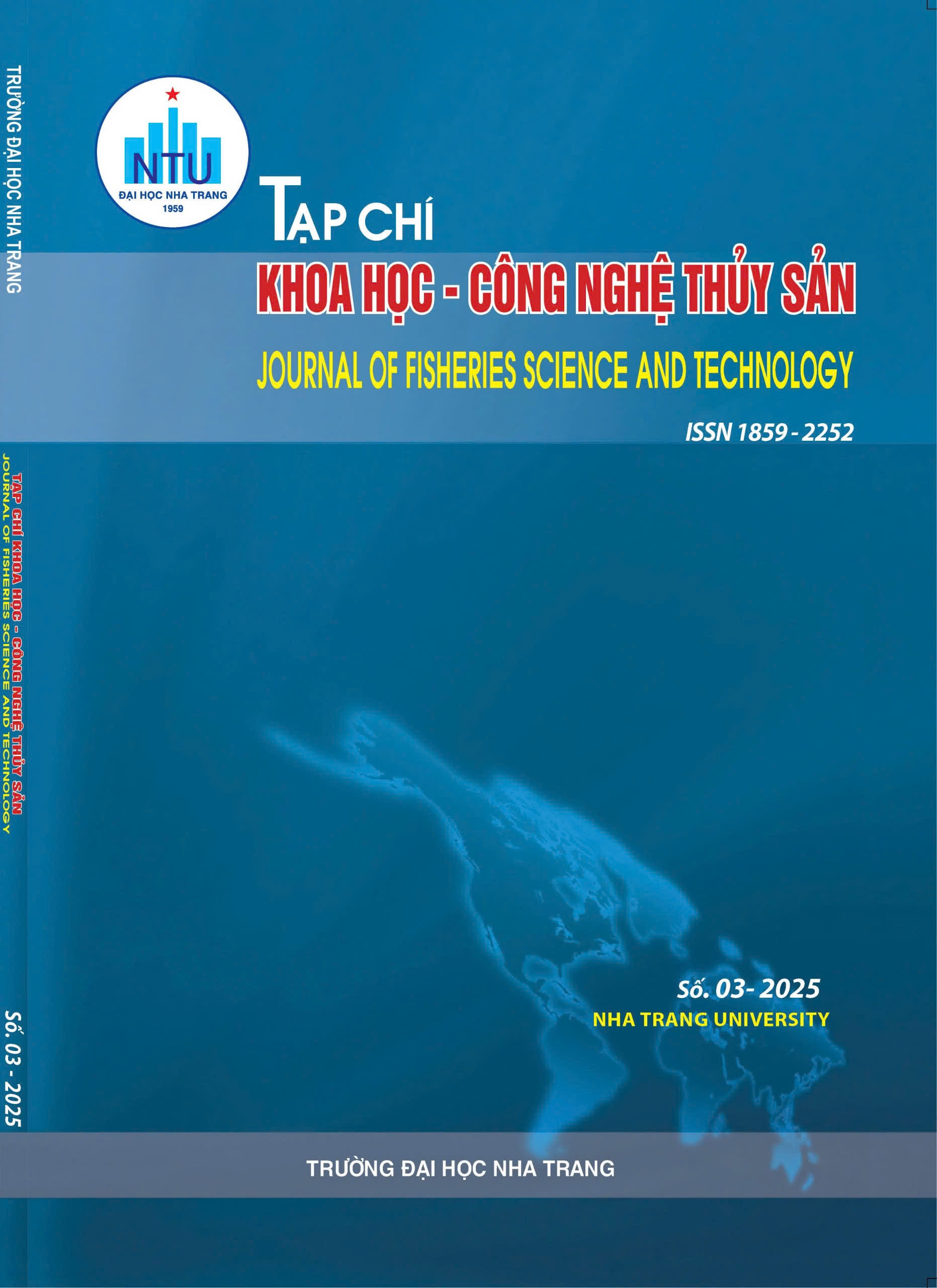##plugins.themes.huaf_theme.article.main##
Tóm tắt
Nghiên cứu ứng dụng kỹ thuật shotgun metagenomics để đánh giá tác động của việc bổ sung hỗn hợp probiotics (Lactobacillus acidophilus và Bacillus subtilis) lên hệ vi sinh vật đường ruột của tôm thẻ chân trắng (Litopenaeus vannamei). Hai nghiệm thức, đối chứng và bổ sung probiotic, thực hiện trong 84 ngày. Kết quả cho thấy probiotic tạo ra những thay đổi tích cực đáng kể, đặc biệt là giảm sự hiện diện của giống Vibrio - một mầm bệnh quan trọng. Phân tích chức năng hệ gen cho thấy probiotic thúc đẩy nhiều con đường biến dưỡng có lợi, như sinh tổng hợp acid béo, lipid, amino acid và cải thiện khả năng phân hủy các hợp chất thơm, từ đó tăng cường hiệu quả trao đổi chất và sức khỏe tổng thể của tôm. Nghiên cứu phát hiện một phổ gen kháng kháng sinh (ARGs) đa dạng, với các gen kháng đa kháng sinh, tetracycline và aminoglycoside chiếm ưu thế. Tuy nhiên, không có sự khác biệt về thành phần ARGs tổng thể giữa hai nhóm. Điều này có thể do liều lượng hoặc thời gian sử dụng probiotic chưa đủ, hoặc do tính ổn định và khả năng lây truyền ngang mạnh mẽ của các gen này trong môi trường nuôi tôm. Những phát hiện này củng cố vai trò của probiotic trong việc cải thiện sức khỏe tôm và cung cấp thông tin quý giá về tập hợp ARGs trong nuôi trồng thủy sản.
Từ khóa: con đường biến dưỡng, hệ vi sinh vật đường ruột, gen kháng kháng sinh, shotgun metagenomics, tôm thẻ chân trắng,
ABSTRACT
This study utilized shotgun metagenomics to evaluate the impact of supplementing a probiotic mixture (Lactobacillus acidophilus and Bacillus subtilis) on the gut microbiota of Pacific white shrimp (Litopenaeus vannamei). The 84-day experiment involved two treatments, a control group and a probiotic-supplemented group. Results revealed significant changes in the shrimp gut microbiota. Regarding species composition, probiotic supplementation notably reduced the abundance of Vibrio – a key pathogen in shrimp aquaculture. Functional metagenomic analysis indicated that probiotics promoted the activity of various beneficial metabolic pathways, including the biosynthesis of fatty acids, lipids, and amino acids, while also enhancing the degradation of aromatic compounds, thereby suggesting improved nutrient utilization and detoxification. Concerning antibiotic resistance genes (ARGs), a diverse array was found, with multidrug, tetracycline, and aminoglycoside resistance genes being predominant. However, statistical analysis showed no significant difference in the overall ARG composition between the two treatments, which could be attributed to insufficient dosage or duration, or the inherent stability and strong horizontal gene transfer potential of these genes in the aquaculture environment. These findings reinforce the role of probiotics in improving shrimp health and provide valuable insights into the ARG reservoir in aquaculture.
Keywords: metabolic pathway, gut microbiota, antibiotic resistance genes, shotgun metagenomics, Pacific whiteleg shrimp

